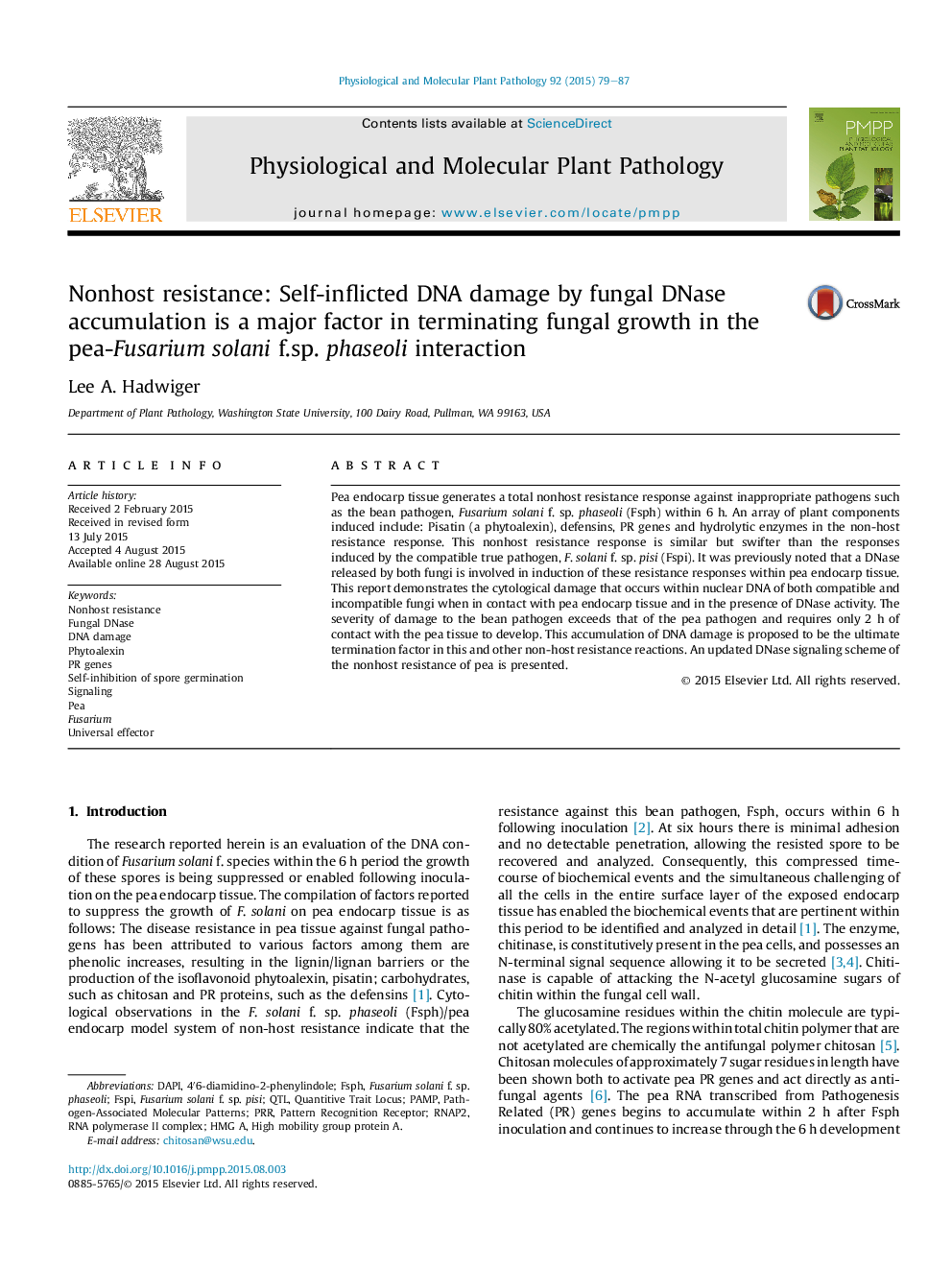| کد مقاله | کد نشریه | سال انتشار | مقاله انگلیسی | نسخه تمام متن |
|---|---|---|---|---|
| 2836247 | 1570847 | 2015 | 9 صفحه PDF | دانلود رایگان |

• Data defines DNase accumulation as a cause for fungal growth suppression in nonhost disease resistance.
• DNase is a molecular explanation for self-inhibition of germination in suspensions of fungal spores.
• DNA damage activates PR genes in the host and suppresses growth in the pathogen – scheme.
• Nuclear dis-assembly can be caused at contact points in a mycelial strand the interfaces with another spore.
Pea endocarp tissue generates a total nonhost resistance response against inappropriate pathogens such as the bean pathogen, Fusarium solani f. sp. phaseoli (Fsph) within 6 h. An array of plant components induced include: Pisatin (a phytoalexin), defensins, PR genes and hydrolytic enzymes in the non-host resistance response. This nonhost resistance response is similar but swifter than the responses induced by the compatible true pathogen, F. solani f. sp. pisi (Fspi). It was previously noted that a DNase released by both fungi is involved in induction of these resistance responses within pea endocarp tissue. This report demonstrates the cytological damage that occurs within nuclear DNA of both compatible and incompatible fungi when in contact with pea endocarp tissue and in the presence of DNase activity. The severity of damage to the bean pathogen exceeds that of the pea pathogen and requires only 2 h of contact with the pea tissue to develop. This accumulation of DNA damage is proposed to be the ultimate termination factor in this and other non-host resistance reactions. An updated DNase signaling scheme of the nonhost resistance of pea is presented.
This research addresses the question, what causes a fungal pathogen in a nonhost resistance reaction to terminate growth? The accumulation of the fungal enzyme DNase, in association with other factors within the interaction that slow fungal growth, terminates growth. Data are presented demonstrating the fungal DNA damage and dis-assembly of fungal nuclei that are associated with growth termination.Figure optionsDownload as PowerPoint slide
Journal: Physiological and Molecular Plant Pathology - Volume 92, October 2015, Pages 79–87